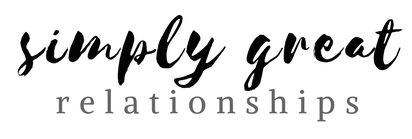We’ve all heard it.
Mid-argument with our partner:
“You’re just like your mother!”
But, what does that really mean? Why is it so common?
We learn how to be in relationships by observing our parents and the adults in our life growing up. We experience love in the ways our parents or caregivers showed us love. The way the important adults in our life expressed their emotions - happiness, frustration, anger - towards us, are the ways we expect our adult partners to do so.
Now, here’s where it gets tricky.
Maybe, we didn’t get along well with our parents or caregivers. Maybe we moved out and vowed never to be treated that way again. We might have hated the way they expressed anger or never really felt loved. But, somehow, we internalized that model for relationships and carried it with us into our marriage.
We view our partner’s actions through the lens of this model and we act (and react) accordingly.
Think of a blueprint that tells you what to do when your partner expresses anger, sadness, or love towards you. Do you push them away? Do you up the ante? Do you yell louder? Do you shrink down and stay quiet?
The dynamics that we grew up with have a tendency to play out in our adult romantic relationships. The good news is they are not unchangeable. By getting really clear on your own template and sharing it with your partner, you two can work together to create your own, new blueprint.
In this week’s episode, we’re talking about how these blueprints are formed in our families growing up, how they influence our relationship in the present, and exactly how to move forward with making changes.
Listen:
Disclaimer:
Silveron Productions LLC and Nassau Wellness Marriage and Family Therapy PLLC do not hold itself out to be your psychologist, psychiatrist, psychotherapist, or social worker. Our content is provided for informational and educational purposes only and is not to be perceived or relied upon as medical or mental health advice, diagnosis or treatment. Do not use our content in lieu of professional advice given by qualified medical and mental health care professionals and do not disregard professional medical or mental health care advice or delay seeking professional advice because of information you have received from us. Always seek the advice of your physician or other qualified mental health provider with any questions you may have regarding a medical condition or mental disorder. If you think you may have a medical or mental health emergency, call your professional caregiver or 911 immediately. We do not recommend or endorse any specific tests, physicians, psychologists, psychiatrists, psychotherapists, social workers, products, procedures, opinions, or other information that may be mentioned in our content. By viewing our content, you acknowledge and agree that the following warnings and disclaimers apply to all of our content and agree to indemnify and hold Nassau Wellness and all content participants for any and all losses, injuries, and damages resulting from any and all claims that may arise from your use or misuse of the content.
By viewing our content, you further acknowledge that you are doing so voluntarily and at your own risk, and that you are solely and personally responsible for your choices, actions, and results, now and in the future. You accept full responsibility for the consequences of your use or non-use of any information provided in our content. Nassau Wellness is not liable for any advice or information provided in our content, all of which is provided on an “as-is” basis. No warranties, either express or implied, are made regarding the information we provide, and Nassau Wellness makes no representations about the accuracy or the suitability of our content. Opinions and other statements expressed by third-parties are theirs alone.


